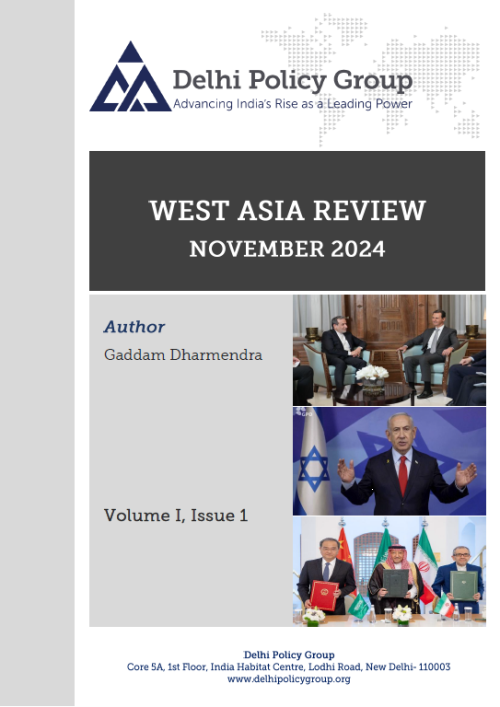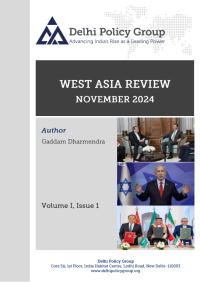West Asia Review
Date: December 07, 2024
The month of November was witness to fast-paced developments in West Asia, following the decisive victory of Donald Trump in the US election.
In this issue, the author reviews the impact of Trump’s election on this volatile region, the renewed conflict in Syria, the likely return to Trump’s “maximum pressure” campaign on Iran, the Hezbollah-Israel ceasefire, and the changed scenario for US engagement with Saudi Arabia.
The author underscores that Trump’s nominees for key cabinet positions herald a resumption of pro-Israel US policies. The “Trump effect” is already in play, on multiple levels and across the numerous fissures in West Asia.
Conflict in Syria, which has remained frozen since 2016, has re-erupted, triggered by Trump’s announcement of a likely US withdrawal from Syria, as well as the debilitating losses inflicted by Israel on Hezbollah which has left the Assad regime vulnerable. Amidst strategic setbacks for Iran and divergent interests between Türkiye and the US, a renewed civil war now looms in Syria.
Meanwhile, as Trump returns to address the multi-layered regional challenge posed by Iran, he may find opportunities in dealing with a more moderate and pragmatic leadership in Tehran, which is already reeling from blows to its “axis of resistance”.
The Hezbollah-Israel ceasefire which came into effect on November 28, 2024 has signalled the highly weakened position of Hezbollah, politically and militarily.
Finally, the author assesses the prospects for US-Saudi relations during Trump’s second term, pointing out the changed regional realities, which have included a China-brokered thaw in Iran-Saudi relations, as well as renewed sensitivities in Riyadh over engaging with Israel.
To read this West Asia Review, Vol. I, Issue 1, please see the PDF attached.
In this issue, the author reviews the impact of Trump’s election on this volatile region, the renewed conflict in Syria, the likely return to Trump’s “maximum pressure” campaign on Iran, the Hezbollah-Israel ceasefire, and the changed scenario for US engagement with Saudi Arabia.
The author underscores that Trump’s nominees for key cabinet positions herald a resumption of pro-Israel US policies. The “Trump effect” is already in play, on multiple levels and across the numerous fissures in West Asia.
Conflict in Syria, which has remained frozen since 2016, has re-erupted, triggered by Trump’s announcement of a likely US withdrawal from Syria, as well as the debilitating losses inflicted by Israel on Hezbollah which has left the Assad regime vulnerable. Amidst strategic setbacks for Iran and divergent interests between Türkiye and the US, a renewed civil war now looms in Syria.
Meanwhile, as Trump returns to address the multi-layered regional challenge posed by Iran, he may find opportunities in dealing with a more moderate and pragmatic leadership in Tehran, which is already reeling from blows to its “axis of resistance”.
The Hezbollah-Israel ceasefire which came into effect on November 28, 2024 has signalled the highly weakened position of Hezbollah, politically and militarily.
Finally, the author assesses the prospects for US-Saudi relations during Trump’s second term, pointing out the changed regional realities, which have included a China-brokered thaw in Iran-Saudi relations, as well as renewed sensitivities in Riyadh over engaging with Israel.
To read this West Asia Review, Vol. I, Issue 1, please see the PDF attached.



